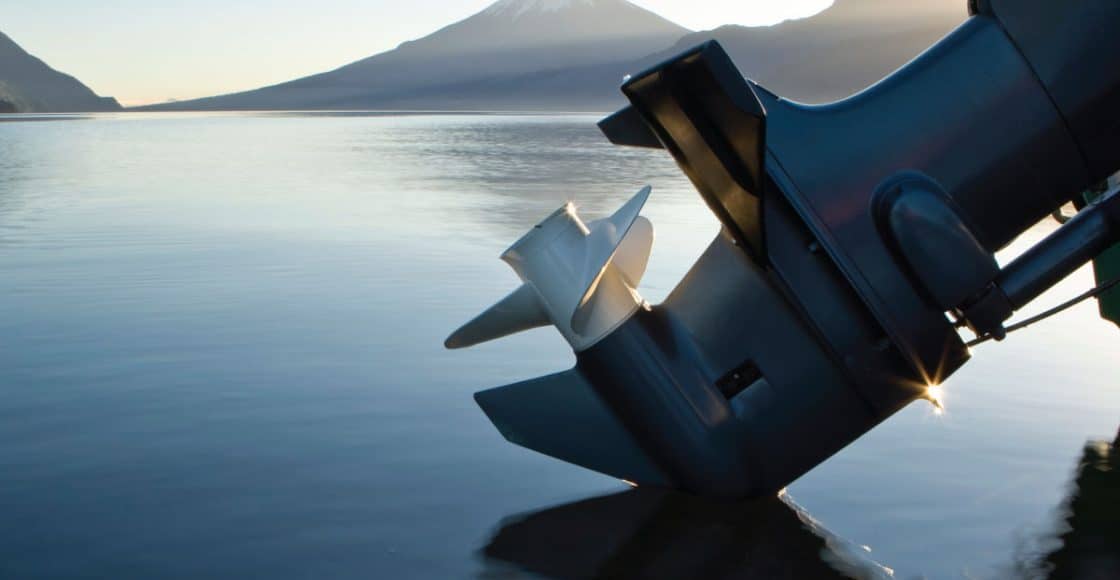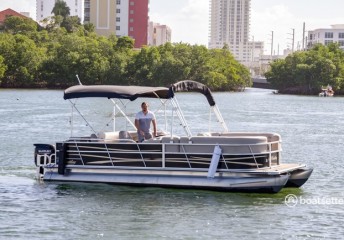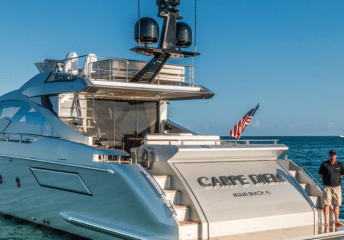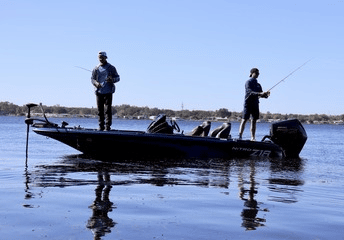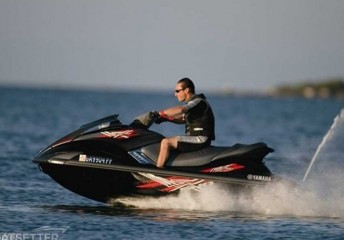What Is Propeller Pitch?
Last Updated on February 14, 2023 by Boatsetter Team
Your boat needs to perform properly to keep cruising speeds up and keep fuel consumption down. Both of these are important considerations to boat owners who are renting their boat out on Boatsetter, and also to recreational boat renters. Any wise boat owner will tell you the boat’s propeller pitch (the measurement of how many inches the prop will travel when it turns in one full revolution) is tied to performance.
There is much more to pitch than that, but this should give you the basic idea. Continue reading for more.
Rent. Charter. Share— Only at Boatsetter
Propeller Diameter & Pitch: The Most Important Measurements
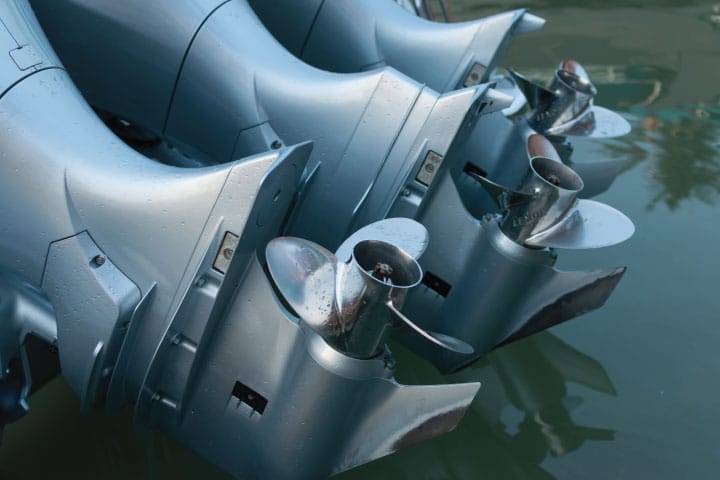
Walk through a marina, look at boats out of the water, and you’ll see that propellers come in many different sizes.
Pitch and diameter (the complete circle made by the blades) are the most important propeller measurements. Your boat’s shaft size will never change, but you may want to adjust your prop’s pitch and diameter during the life of your boat.
You can think of your boat’s propeller pitch as the angle of the blades in relation to the propeller’s barrel-shaped body, which is the hub. If you twisted the blades a little more or less on the hub of the propeller, you would change the pitch.
Propellers are measured in several ways, including the size of the shaft it’s mounted on, the prop’s diameter, and a variable that can make or break your boat’s performance— the propeller’s pitch.
READ MORE: What to Expect on Boatsetter Straight from Our Owners
Why Care About the Pitch?
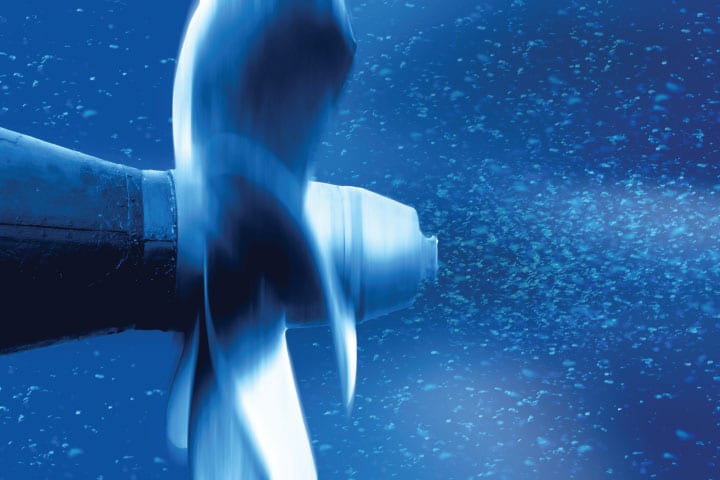
The pitch of the propeller is extremely important for getting the proper performance out of your boat. If it is “overpropped” or “underpropped,” meaning the prop’s pitch is too low or too high, the boat will not run the way it should.
Too much pitch, or too much of an angle to the propeller’s blade, will make it hard for your boat to get up on plane. The boat will feel like it’s working too hard when you throttle up, and your top speed will probably be higher than it should be.
If you have too little pitch, the boat may get up on plane easier, but the engine RPMs will be too high, and your top speed will be too low.
Here are a few things propeller pitch can affect:
- Your engine’s RPM at top speed
- How fast the boat runs at top speed
- How fast the boat goes at idle speed
- How hard the engine works when getting on plane
- How much fuel the boat uses
Your boat came with a carefully matched prop when it was new, but you can use small changes in propeller pitch to make your boat behave differently as your boat gets older or your performance needs to change.
If you like to load the boat up with people, supplies, and water toys, a small adjustment in pitch can help the boat get up on plane without working too hard.
How Do You Know Your Prop’s Pitch?
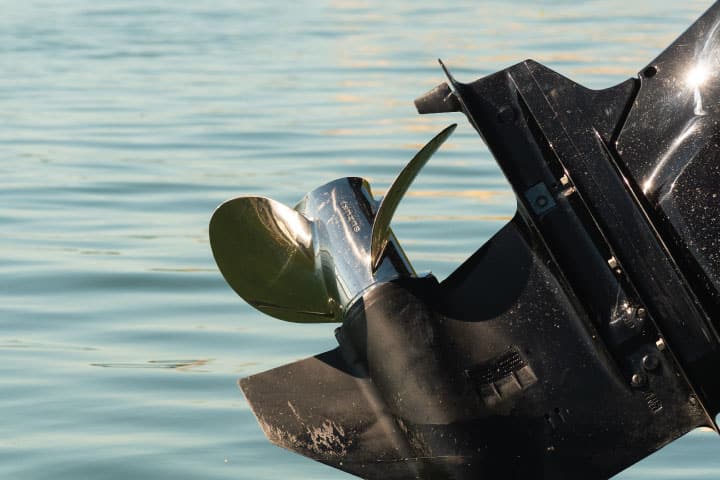
Your prop’s pitch and diameter are measured in inches and stamped into the propeller’s hub. The first number is the diameter, and the second is the pitch.
For example, a prop stamped “14 x 21” is 14 inches in diameter and travels 21 inches in one rotation. A prop stamped “14 1/2 x 19” is 14 1/2 inches in diameter and travels 19 inches in one full revolution.
The proper propeller for your boat provides a balance between top speed, the time it takes to get on plane, and how hard the engine works. The right prop gives you a good middle ground with all three and makes the boat perform the way it was built to.
Proper propeller pitch can mean the difference between a good running boat that performs the way it should and a tub that can hardly get out of its own way.
If your boat does not seem to perform properly, but the engine runs well, make sure your propellers are in the correct pitch before you look for more expensive solutions.
About Us
Boatsetter is a unique boat-sharing platform that gives everyone — whether you own a boat or you’re just renting — the chance to experience life on the water. You can list a boat, book a boat, or make money as a captain.
List. Rent. Earn— Only at Boatsetter

Chuck Warren fell in love with boats at 9 years old while helping to restore his grandfather’s 1939 44-foot Elco cruiser. A lifelong boater, Chuck has experience operating large and small vessels on the waters of the Atlantic, Gulf of Mexico, Caribbean, and the Great Lakes.
During his 35-year marine industry career, Chuck has been the driver for several offshore powerboat racing teams, the chief engineer aboard a Caribbean research and salvage vessel, captain of a Florida Keys sunset cruise, and more.
Today, Chuck is a boating industry writer, copywriter, and captain who lives on his 40-foot boat in the summer when he isn’t delivering vessels around the Great Lakes or teaching new boaters to drive. Winters are split between the West Michigan lakeshore and wherever his travels take him.
